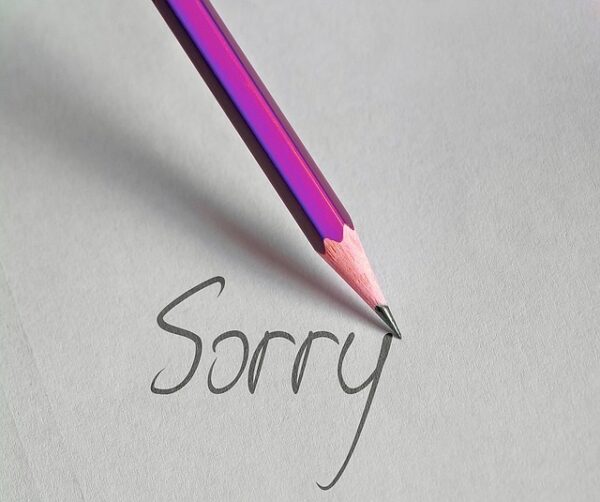As moms, we’ve all been there—two kids in tears, one clinging to a toy, the other muttering a quick “sorry” before running off. But deep down, we know that kind of apology doesn’t build character or heal relationships. What our kids need is to understand why their actions hurt others and how to respond in a way that shows genuine heart change.
Years ago, a friend shared with me a simple 4-step formula for teaching children how to apologize. It’s not about shaming them, but about gently shepherding their hearts toward kindness, responsibility, and empathy. I loved it then, and I still use it today.

Four-Step Formula for Apologies
Here’s the formula:
- Apologize for the specific action done.
Don’t let “I’m sorry” stand alone—teach your child to name the action. Example: “I’m sorry for stealing your toy.” - Explain why the action was wrong.
Help them connect the behavior to the bigger picture. Was it unkind? Selfish? Hurtful? This points to the heart of the matter. This might sound like, “It was wrong because it hurt your feelings and because I was selfish, thinking only of what I wanted.” - Share how the situation will be handled next time.
Teach them to choose a better response. Example: “Next time I’ll wait until you’re ready to share.” - Ask for forgiveness.
A humble, “Will you please forgive me?” completes the process and restores the relationship.

Putting It Into Practice
I wrote the four steps on a piece of paper and taped it to the fridge so we could walk through it together after an offense. While these steps may feel a little mechanical, over time I noticed something beautiful: my kids began taking ownership of their words and actions. The formula became less about memorization and more about true reconciliation.
Teaching kids to apologize this way takes time, patience, and repetition—but the payoff is huge. The ABCJesusLovesMe website contains quality books about forgiveness, Bible verses, activity, and games to help support what you are teaching.
So, mama, don’t grow weary. Each time you walk your child through this process, you’re planting seeds of empathy, humility, and responsibility. With consistency and grace, you’re giving your children a lifelong tool for building stronger relationships and showing Christlike love in everyday conflicts.
It’s Here and It’s Better Than Ever!
The 2026 Be Intentional Planner is ready to help moms and teachers manage schedules, meals, goals, and more—all in one place. The new layout was designed with your feedback in mind. The only decision you have to make is: Do I want the Large or Small Planner?

